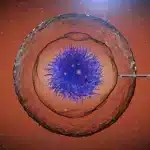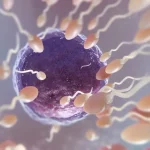
Introduction
In today’s evolving society, the definition of family has expanded beyond traditional norms. Single individuals and LGBTQ+ couples are increasingly seeking ways to build families that reflect their identities and aspirations. One promising avenue is the use of frozen donor embryos, a method that combines medical advancement with inclusivity.
Understanding Frozen Donor Embryos
Frozen donor embryos are embryos created from donated eggs and sperm, typically from individuals or couples who have completed their own IVF treatments and have surplus embryos. These embryos are cryopreserved and stored for future use by recipients who are unable to conceive using their gametes.
Key Advantages:
- Cost-Effective: Generally, it is less expensive than traditional IVF or egg donation cycles.
- Higher Success Rates: Frozen embryo transfers (FET) have shown comparable or even higher success rates than fresh transfers.
- Inclusive: Accessible to single individuals and LGBTQ+ couples seeking parenthood.
- Ethical Considerations: Provides an option for embryos that might otherwise be discarded.
Why Frozen Donor Embryos Are Ideal for Single and LGBTQ+ Individuals
- Accessibility Without a Partner
For single women or men and LGBTQ+ individuals, frozen donor embryos offer a pathway to parenthood without the need for a traditional partner-based conception. This method allows for family building that aligns with personal circumstances and desires.
- Affordability Compared to Traditional IVF
The cost of a single IVF cycle can range from $12,000 to $25,000, excluding medications and additional procedures. In contrast, using frozen donor embryos can be more cost-effective, with expenses varying based on clinic and location.
- Legal Clarity
Embryo donation involves clear legal agreements that transfer parental rights to the recipient(s), reducing potential legal complexities, especially important for LGBTQ+ couples and single individuals.
The Process of Using Frozen Donor Embryos
Step 1: Initial Consultation
Meet with a reproductive endocrinologist to discuss medical history, fertility goals, and suitability for embryo donation.
Step 2: Embryo Selection
Choose from available donor embryos, often with access to detailed profiles including medical history, ethnicity, and other relevant information.
Step 3: Legal Agreements
Establish legal contracts that outline the transfer of parental rights and responsibilities, ensuring clarity and protection for all parties involved.
Step 4: Medical Preparation
Undergo necessary medical evaluations and treatments to prepare the uterus for embryo transfer, including hormone therapies as prescribed.
Step 5: Embryo Transfer
The selected embryo is thawed and transferred into the uterus in a procedure similar to a standard FET.
Step 6: Follow-Up and Pregnancy Test
Approximately two weeks post-transfer, a pregnancy test is conducted to confirm implantation success.
Medical and Ethical Guidelines
ASRM Recommendations
The American Society for Reproductive Medicine (ASRM) provides comprehensive guidelines for embryo donation, emphasizing:
- Donor Screening: Thorough medical and psychological evaluations of donors.
- Recipient Counseling: Psychological counseling for recipients to address emotional and ethical considerations.
- Informed Consent: Detailed consent processes ensure all parties understand the implications of embryo donation.
FDA Regulations
The FDA mandates rigorous screening for infectious diseases in donors, including tests for HIV, hepatitis B and C, syphilis, and others. These regulations are in place to ensure the safety and health of both recipients and potential offspring.
Success Rates and Outcomes
Frozen embryo transfers have shown success rates ranging from 45% to 60%, depending on various factors such as the age of the egg provider and the quality of the embryo. Advances in cryopreservation techniques have contributed to these favorable outcomes.
Emotional and Psychological Considerations
Embarking on the journey of embryo donation involves emotional complexities. Recipients are encouraged to seek counseling to navigate feelings related to donor anonymity, future disclosure to the child, and the psychological impact of using donated embryos.
Conclusion: Building Inclusive Families
Frozen donor embryos offer a viable and inclusive option for single individuals and LGBTQ+ couples aspiring to become parents. With advancements in medical technology, supportive legal frameworks, and comprehensive guidelines from authoritative bodies like ASRM and the FDA, this pathway to parenthood is more accessible than ever.
Frequently Asked Questions (FAQs)
Q1: Is embryo donation legal for single and LGBTQ+ individuals?
Yes, embryo donation is legal and accessible to single individuals and LGBTQ+ couples. Legal agreements are established to transfer parental rights to the recipient(s).
Q2: Can I choose the donor’s background?
Many embryo donation programs provide detailed profiles, allowing recipients to select embryos based on various factors, including ethnicity, medical history, and other personal preferences.
Q3: What are the success rates for frozen embryo transfers?
Success rates for frozen embryo transfers range from 45% to 60%, influenced by factors such as embryo quality and recipient health.
Q4: Are there any health risks associated with using donated embryos?
Donor embryos undergo rigorous screening for infectious diseases and genetic conditions, minimizing health risks. Recipients also undergo medical evaluations to ensure suitability.
Q5: How long does the process take from selection to transfer?
The timeline can vary but typically spans 2 to 4 months, including consultations, legal agreements, medical preparations, and the embryo transfer procedure.
Embarking on the journey of parenthood through frozen donor embryos is a profound and personal decision. With the right information, support, and medical guidance, single individuals and LGBTQ+ couples can confidently take steps toward building their families.

Dr. Kulsoom Baloch
Dr. Kulsoom Baloch is a dedicated donor coordinator at Indian Egg Donors, leveraging her extensive background in medicine and public health. She holds an MBBS from Ziauddin University, Pakistan, and an MPH from Hofstra University, New York. With three years of clinical experience at prominent hospitals in Karachi, Pakistan, Dr. Baloch has honed her skills in patient care and medical research.





